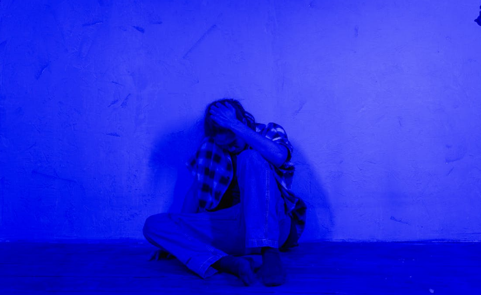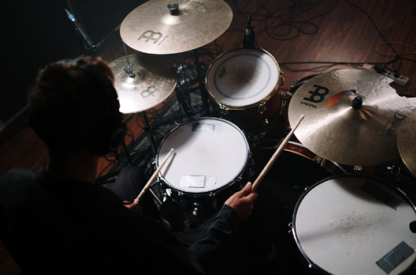Sometimes certain sounds can negatively affect a person to an extreme degree. Often termed “sound disorders”, misophonia & tinnitus are the two most prominent and common of these types of sound related conditions. Even though these conditions are different, many people are unable to differentiate between them. Therefore, in this article, we will discuss the relation and differences between Tinnitus and Misophonia.
What is Tinnitus
Tinnitus is a sound disorder also known as ringing in the ear. People suffering from this condition consistently hear different noises without any external source. The sound can be constant, or it may fluctuate. There can be numerous reasons you hear this sound in your ear. It may be due to a bacterial infection or high blood pressure. But, in most conditions, people develop this condition due to loud noise exposure.

In this condition, people hear different types of noise such as whistling, buzzing, hammering, and ringing, which is the most common sound. When someone visits a concert or club with high levels of noise, they risk developing tinnitus. Therefore, it is important to wear safety earplugs when you are around loud noise. Because the effects of tinnitus are irreversible, you should take safety measures. You should better be safe than sorry.
Causes of Tinnitus
Tinnitus may develop suddenly or gradually depending on the cause. Experts are still unaware of the actual cause of the condition. But, some suggest that it occurs due to various reasons. Here are some causes related to tinnitus:
- Accumulation of earwax
- Infection in the middle ear
- Damaged in the inner ear
- Meniere’s disease
- Otosclerosis
- Age-related hearing loss
However, about one out of three Tinnitus patients don’t develop the condition due to any ear or hearing problem.
What is Misophonia
Misophonia is a psychological condition, but many people consider it to be hearing damage. Since there is limited research about this condition, fewer people are aware of it. Misophonia is different from tinnitus in the way that it is caused by an external source. Misophonia isn’t the result of damage to the ear. But the brain considers some sounds to be more triggering than others. Perhaps their brain associates some sounds with a traumatic event. Therefore, whenever they hear the sound, their brain responds aggressively. People with this condition consider certain sounds so annoying that they become angry and violent. Their brain creates emotional and fight-or-flight situations. The triggering sound in this condition includes swallowing, chewing, smacking, and sniffing. A study found that about 80% of the triggering sounds that a person with misophonia cannot stand are related to the mouth. They include chewing, popping gum, slurping, eating, and whispering. However, around 60% of sounds were repetitive. A person suffering from misophonia may also react negatively to visual triggers.
People may show different reactions ranging from downright aggression to annoyance. They might feel certain sounds so severe that it is hard to avoid. Their reaction has direct consequences on their happiness. Experts should conduct more research about this condition. Currently, this condition isn’t considered a psychiatric condition, and the mechanism is still unknown. But once researchers learn more about this condition, we will be able to treat this condition. But right now, people with misophonia can only cope with triggering sounds.

Coping Techniques for Misophonia and Tinnitus
Like Misophonia, there is no cure for tinnitus. But, experts use various masking techniques to reduce the effects and symptoms of the condition. When you visit a professional doctor for tinnitus, they will diagnose your condition to determine the underlying cause. However, with misophonia, the doctor will identify your triggering sounds. For instance, when the actual cause of your tinnitus is wax accumulation, the doctor will treat you by removing the wax. But when the doctor identifies the triggering sound for misophonia, they can use the masking technique to help you cope with the sound. Here are some methods a doctor will use to reduce the symptoms of tinnitus and misophonia:
1. Sound Therapy
A sound specialist will try different soothing sounds to distract you from these conditions. The neutral sounds include the sound of water, birds, animals, and even ASMR. White noise is also helpful in both these conditions.
2. Counseling
Counseling helps the patient understand the condition they are suffering from. These therapies intend to suggest a coping mechanism. When you know effective methods to cope with the condition, you can quickly recover.
3. Cognitive Behavioral Therapy (CBT)
This type of therapy changes the way you think about triggering sounds which will make the sounds less obvious and noticeable.
4. Tinnitus Retraining Therapy (TRT)
This therapy help retains how your brain responds to certain sounds. As a result, the triggering sound will be less obvious. This technique is also helpful for misophonia.
Sound Disorders Misophonia Tinnitus: Conclusion
The sound disorders misophonia & tinnitus burden day to day life. Do you live in NYC and want to consult with a specialist in treating and in some cases curing sound disorders? Give us a call and discuss your condition with our expert. At the Misophonia Cognitive Center™, we help people with misophonia tackle symptoms and cope with their condition. Contact us tody and avail a free consultation with Stephen Geller Katz.
MISOPHONIA COGNITIVE CENTER™
Stephen Geller Katz
19 West 34th Street
Penthouse Floor
New York, NY 10001
646-585-2251
